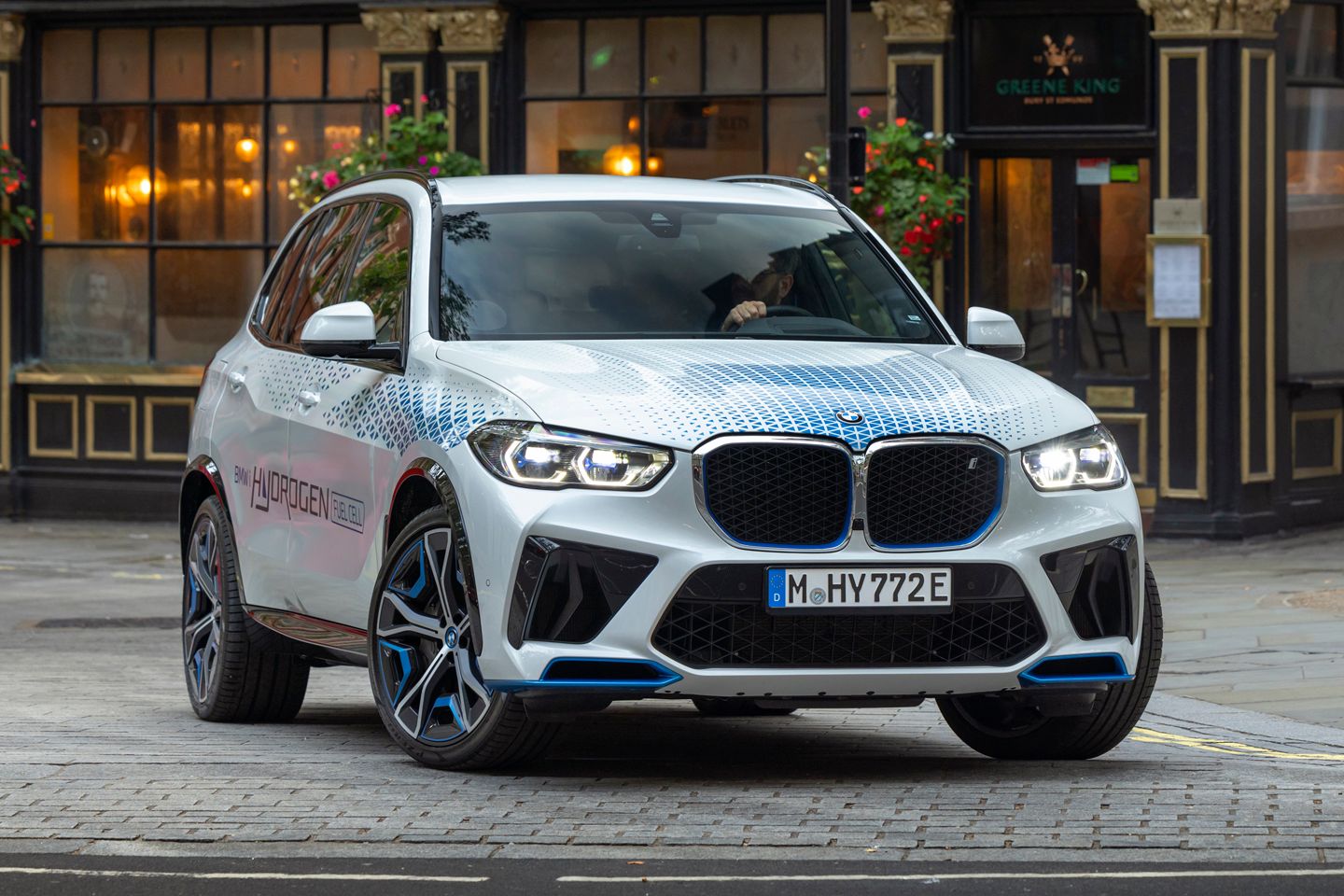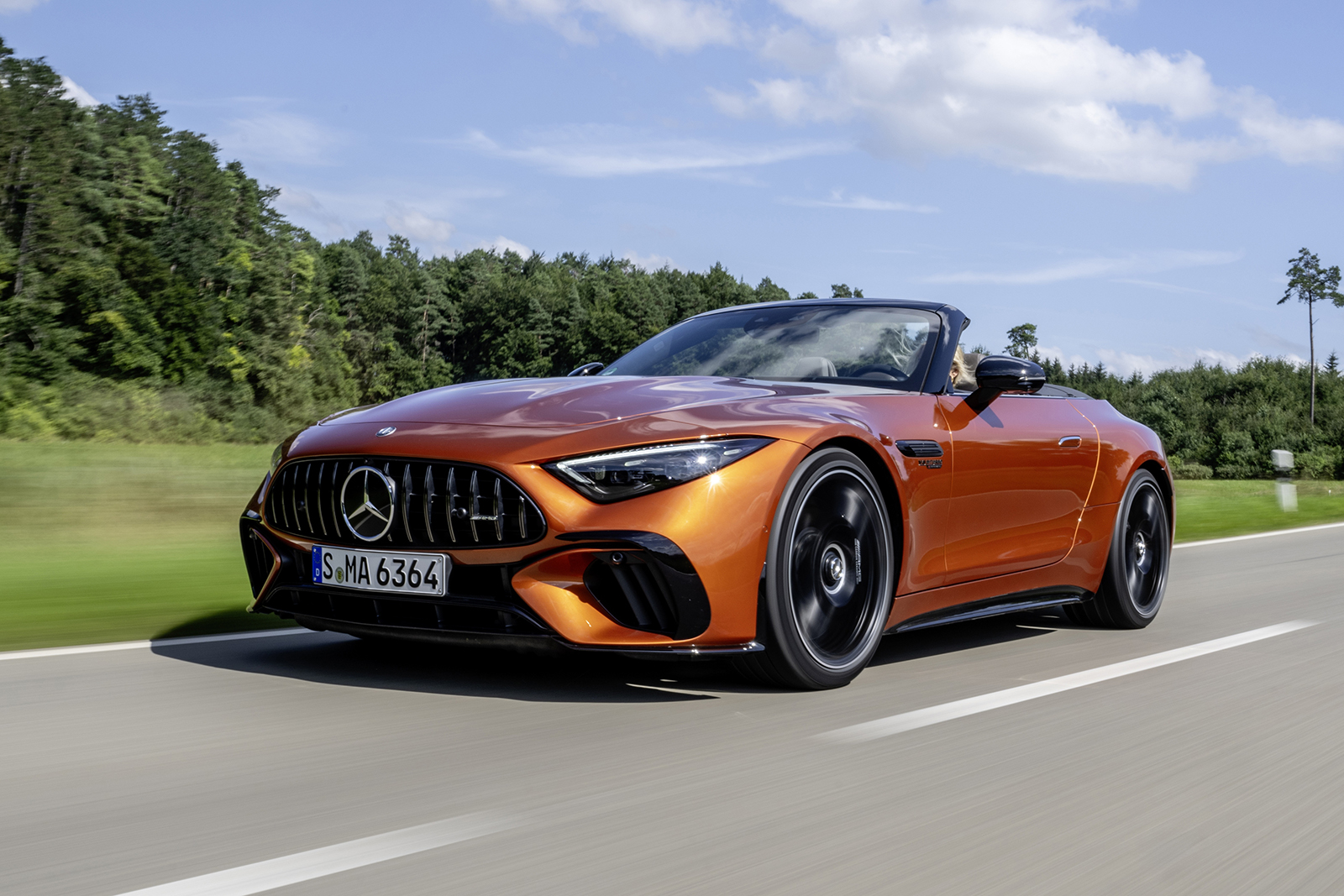
In terms of sales volume, the past performance of fuel cell electric vehicles (FCEV) is not great. And that’s putting it mildly. The technology, primarily using compressed hydrogen, has been around in an automotive sense for decades and as (sort of) viable retail product from at least 2008. But with very limited infrastructure and questions of inefficiency when compared with pure battery-electric vehicles, FCEVs have not made much of a dent in the public consciousness – particularly in Europe, where the vast majority of EV investment has been directed at more conventional solutions.
But that hasn’t prevented several major manufacturers from covering their bets. BMW has previously voiced reservations about fuel cells as it accelerated its presence in the fledgling EV market – but that did not prevent it from entering a partnership with Toyota (a long-standing investor in fuel cells) to further study the technology. The BMW iX5 Hydrogen, unveiled in 2019, was one outcome of that collaboration, and it entered a period of long-term fleet testing which the firm evidently deemed successful. Successful enough for BMW to announce that its first-ever series production FCEV will launch in 2028.
To achieve this goal, the existing partnership with Toyota will be deepened with both firms pooling ‘their innovative strength and their technological capabilities to bring a new generation of fuel cell powertrain technology to the roads.’ Toyota suggested that they shared a ‘multi-pathway’ approach to carbon neutrality, and stressed the importance of a combined ‘passion for cars’.


BMW boss Oliver Zipse went one step further: “This is a milestone in automotive history: the first-ever series production fuel cell vehicle to be offered by a global premium manufacturer. Powered by hydrogen and driven by the spirit of our cooperation, it will underscore how technological progress is shaping future mobility. And it will herald an era of significant demand for fuel cell electric vehicles.”
Given the lacklustre response to Toyota’s current fuel cell production model, the Mirai (reportedly the subject of an ongoing class action lawsuit in California over the alleged lack of refuelling facilities), the second point is surely more optimistic than the first. There is hardly any question of the partnership’s core ability to create a third-generation powertrain, or locate the synergies that would benefit ‘their distinct brand identities and characteristics’ – the issue is generating sufficient customer interest to sustain mass production.
Hence the four-year run-up to incorporating such a car into BMW’s existing portfolio (where, the firm stresses, it will sit alongside BEVs and PHEVs and ICE products) and an ongoing emphasis on the importance of establishing a ‘pathway to realizing the full potential of hydrogen mobility’. Which very much includes supporting any firm that is committed to ‘building low-carbon hydrogen production, distribution, and refuelling facilities’ and encouraging national governments to do a better job of laying the framework that might lead to the economic viability of fuel cells more generally. In other words, and as we’ve become accustomed to saying, watch this space.
Source link
#BMW #confirms #fuel #cell #car



